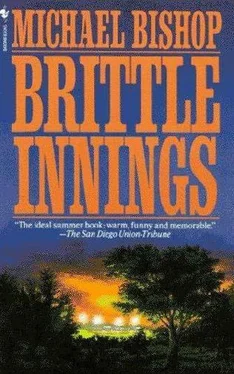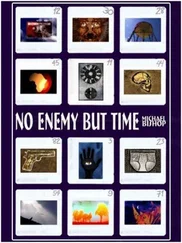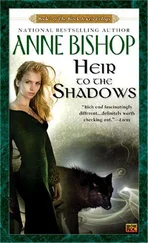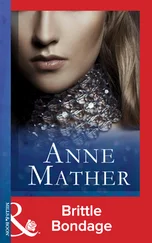Faithfully, “J.” H. C.
Like I’d need some sort of corny sign. Unless he’d cut himself down to a Munchkin’s height or had plastic surgery on his ugly mug.
Anyway, the idea of a trip scared me. I’d never flown before, and the distance and the layovers terrified me. I broke the news to Mama, though, and told her both who’d sent the tickets and that I planned to go. She knew Henry from a creased team photograph as “that big ugly-gawky fella m the back,” and from my letters home as a pretty decent roommate, and from stories out of Highbridge at the end of the ’43 season as an on-the-lam murder suspect.
It’d crossed my mind that Mama might take this news and pass it on to Miss Tulipa, or Mayor Stone, or our new county sheriff, but I couldn’t fly off thousands of miles without taking that chance and trusting Mama to trust me.
“Dick Boles don’t deserve a graveside visitor,” Mama Laurel said. “Nor such a journey from the son he fled.”
“Even so, I’m going, Mama.”
“Take the Brownie then. Take some pictures.”
On my trip, I must’ve smoked a carton-two cartons-of cigarettes in all those different airports and on the flights themselves. I was twenty years old, almost legally an adult, but because of all my travel, bad meals, and missed sleep, I had an outbreak of schoolboy acne that upped my dependence on tobacco. By the time my umpteenth flight-this one aboard a small Electra prop plane-came down through a tattered fog and landed on Kodiak’s airstrip, I had a lung-crumping cough.
Henry stood on the edge of the field near the parking lot. No one could miss him, even though he’d separated himself from the other two parties there to greet the plane. As a sure ID, though, he clutched a pale yellow stalk of wild celery in one hand. It also struck me, as I wobbled towards him, his face looked awfully ugly and fearsome that afternoon-most likely because of the ivory labrets, carven like polar bears, he’d inserted in the cheek holes (in Highbridge, mere scar-tissue welts) at the corners of his mouth.
“Roomy,” I said.
Henry glanced about him, at the overarching sky and the nearby mountains visible through cloud or fog wisps. “Yes,” he said, “but on clear days it seems even moreso.”
***
A Russian Aleut by the name of Dorofey Golodoff-Henry called him Fego-flew us in a beat-up light aircraft to Nikolski, an Aleut village on Umnak, where my father’d been stationed during the war. Fego lived near Nikolski in a barabara , or dugout sod house, that put me in mind of Henry’s underground hideaway in a branch of Tholocco Creek in Alabama. We spent the night with Fego, a burly Asiatic-looking man with a broad squashed nose and long jet-black hair. I had a couple of inches of height on him, but he out-weighed me by forty pounds or more, even though he moved from room to room in his house with the speed and agility of an otter. For supper, he fed us steamed clams, batter-fried octopus, and a salad of kelp, wild onions, and Fox Islands celery.
As we ate, Fego told us, “When the tide goes out, the table is set.” Beyond repeating this comment, he said little else, and all I recall of what he did say is that Aleut folk saying, which explains how this hardy people could subsist in such a forbidding place. Fego, however, also received pay from the United States government as a surveyor and a backup mail pilot, and the next day he flew us to Attu, the remotest island in the chain, with a single delivery and refueling stopover at the naval station airfield on Adak Island, not quite midway between Umnak and Attu.
Luckily, or we wouldn’t’ve flown, the day broke and stayed clear, with no fogs or willawaws arising from the collision of Bering Sea waters and the warmer flow of the Kurishio or Japan current, and an easy pewter chop moving along beneath the high whine of Fego’s prop plane.
On Attu, Henry led me inland on foot from Massacre Bay towards the island’s western mountains. Fego didn’t accompany us. Through most of this trek, it drizzled on us. Towards late afternoon, the drizzle thickened into a light snow, and my injuries put an extra hitch and a gnawing round of lesser and greater pains into my limp.
We took shelter from the snow, the day’s chronic gauziness, and the ache that’d settled in my legs in a Japanese hut not demolished during the U.S. invasion four springs earlier. In the hut’s litter, I found an empty sake bottle, a half-burnt diary in Japanese characters, and two sets of weather-warped snow skis. We ate from tins we’d backpacked in.
“Henry, what’re you doing in this godforsaken place?” I asked between spoonfuls of lumpy pork and beans.
“Escorting you to your father’s grave.”
“I mean, besides that. Did you come back up here to live, to be the Eskimo Hiding Man-?”
“Inyookootuk.”
“Yeah, Inyookootuk. To be the Hiding Man forever?”
“I am not an Aleut. I would hide forever among the Innuit of the mainland, but not in this storm-wracked island chain.”
“Is that what you plan to do? Hide forever?”
“This is a temporary exile, Daniel, a mere sabbatical. I wish to re-create myself. As Wordsworth wrote, ‘So build we up the Being that we are.’ But I despair of the authenticity of my materials.” He removed and pocketed his labrets, so as not to be distracted by them on our hike tomorrow, and refused to say another word that night.
The next day we reached a peak called Sarana Nose. The snow had stopped. The drizzle had stopped. Sunlight dropped through the whirling fog like lamplight through an aquarium full of seaweed. We reached an embankment on the mountain, a tierlike balcony on its flank, where several small stone cairns and a group of flat-nailed wooden crosses jutted up out of the muddy soil to mark burial plots. One cross boasted a round Japanese grave marker with Oriental paint-brush characters on it. I stood next to Henry in the chill, sweeping wind, dwarfed by him on a big volcanic sea rock at the top or maybe the end of the world.
“Here your father lies,” Henry said.
“How do you know?”
“A party of Eleventh Air Force personnel came out here during the Army’s mopping-up exercises-as hunters, not merely observers. They were shot or hand-grenaded by snipers. The snipers buried them here and memorialized their sacrifice.”
“How do you know?” I said again.
Henry read the hand-lettered inscription: “ ‘Sleeping here, five brave soldier heroes who forfeited youth and happiness for their motherland.’ ”
“A Jap wrote that?” I said.
Henry said nothing.
“A Jap my daddy and his pals had come out here to hunt down and shoot?”
Henry still said nothing.
“How do you know it’s the graves of Dick Boles and his friends? Does the inscription list names?”
“I fear it doesn’t.”
“Then how do you know?”
“ ‘Sleeping here, five brave soldier heroes who forfeited youth and happiness for their motherland,’ ” Henry read again.
“That doesn’t answer my-”
“Shhhh,” Henry said, a mittened finger to his lips, exactly between the ugly labret holes at each mouth corner. “In this place, Daniel, before your father’s grave, and in the presence of his enemy’s uncommon integrity, you should stand speechless, humbly mute.”
“B-B-But I-”
“Shhhh.”
I bowed my head. Memories welled. When next I looked up, a bald eagle’d caught a towering updraft. It wheeled in the high Aleutian gauze. Its talons seemed to spiral through my feelings like the threads of a screw. Finally, I looked at Henry, almost blinded by the sting of the wind and the thin wax of grief in my eyes.
Henry reached into his pack and rummaged out a brand-new National League baseball. He flipped it to me. I caught it with both hands, like an amateur. I stood there for a minute turning that ivory ball in my gloves before it occurred to me to wedge it into the natural cup of the stone cairn supposedly marking my daddy’s grave. In that cup, the ball glinted like a lighthouse beacon and focused the whole of Attu Island around it, a pivot for the world to turn on.
Читать дальше












